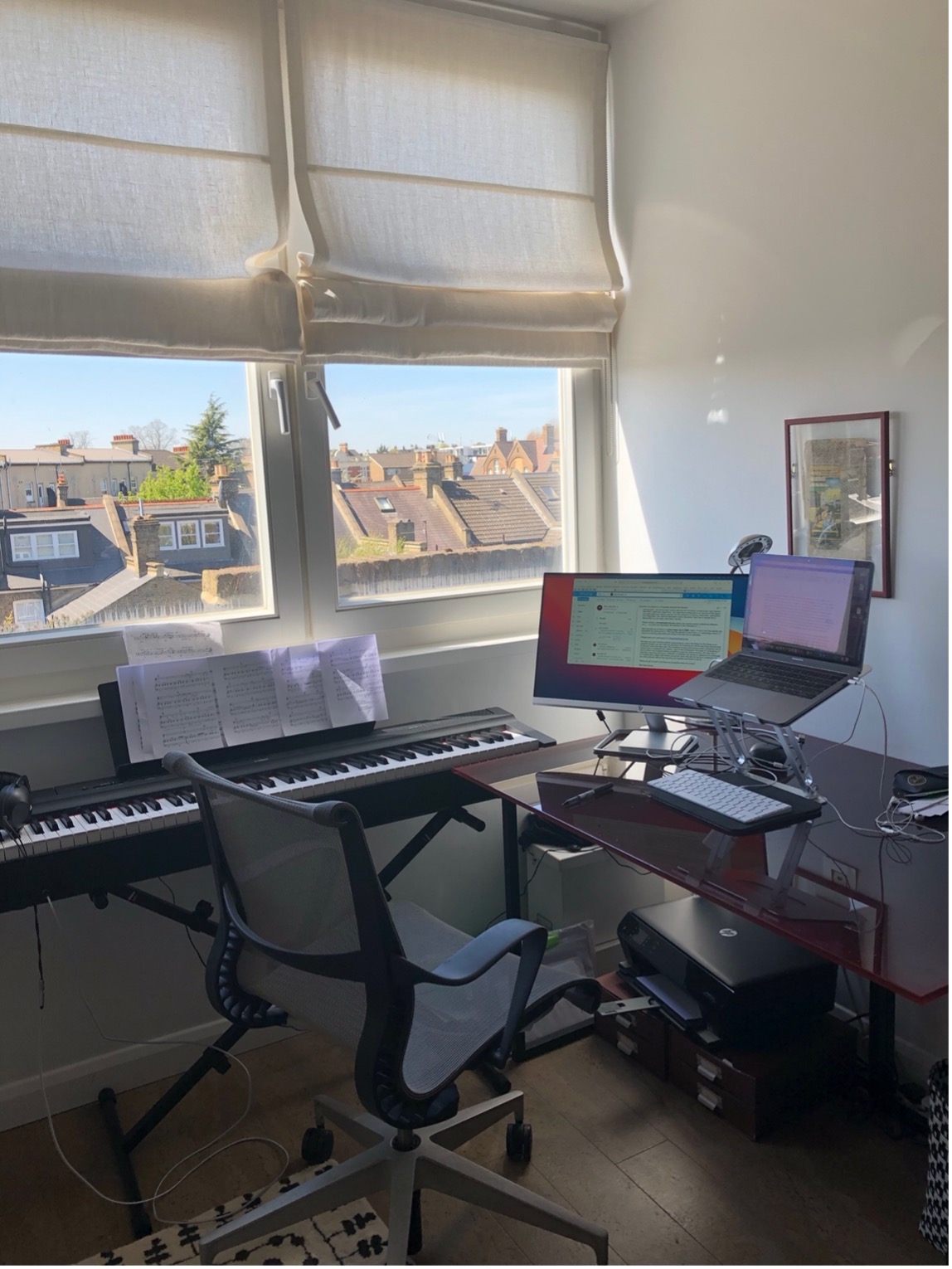
In my room
Lockdown. My flat feels smaller. My desk is next to the window, so at least there’s light. The rooftops of Kilburn are to my left, and if I hold my gaze in that direction I can ignore the news. It is April 2020 and I go out only for runs in Queen’s Park and walks with friends. I come back and sit, screen meeting after screen meeting. Our local pharmacist has died of Covid-19, having been on diligent, caring duty with patients entering the pharmacy throughout the silent deadly months of February and March. Rubbish has piled up on the street, and I imagine how vulnerable key workers are to the threat. And yet, every day people throw out more and more cardboard from their purchases to upgrade new home offices. I do the same — a stand for my laptop, an extra screen — until the number of deaths rises so high as to turn my gaze away from the rooftops. Each day in the news or on social media I see the primarily black and brown faces of those key workers who have died. I stop plumping my own nest and do a version of prayer for the whole thing to stop.
As the months wear on I get used to being nearly 12 hours a day here at my desk at the window. This is becoming permanent. But screen life is also deadly.
I gaze left to those rooftops.
I dream.
Sometimes I say no to a meeting and I write by hand.
In April 2021 things start to open up. Vaccines protect some key workers and many of us in corners near windows. Rubbish is regularly cleared away. But my corner is tainted by the last year. Someone has put it astutely: “we no longer work from home but live at work.”
I plan an escape.
A piano arrives. Music will take me everywhere.
I recycle the box it comes in.
Tessa McWatt writes fiction, non-fiction and libretto, and is a Professor of Creative Writing at the University of East Anglia.